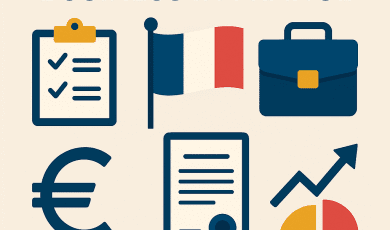
On-Site Interpreting Services at Press Conferences: Precise Communication for Journalists
In the ever-evolving landscape of journalism in France, effective communication is crucial—especially at press conferences where precision, speed, and nuance matter most. As France continues to be the epicenter of newsworthy events—from political summits to international sports tournaments—journalists from various linguistic backgrounds gather to report vital stories. However, language barriers can often hinder accurate and timely reporting. This is where dolmetscherdienste vor ort (on-site interpreting services) play a pivotal role, ensuring seamless and precise communication in real time. In this post, we delve into how on-site interpreting at press conferences serves as an indispensable resource for journalists in France, examining its importance, the evolving trends in the industry, how it compares to other interpreting modalities like telefondolmetschen (telephone interpreting) and remote dolmetschen (remote interpreting), job opportunities, and recent developments in French news where interpreters made a substantial impact.
The Imperative of On-Site Interpreting at Press Conferences
France's role as a hub for global diplomacy, economics, and culture means its press events are frequently attended by international journalists. Major announcements, policy briefings, and breaking news require swift dissemination in multiple languages to global news agencies and readers. On-site interpreting services ensure that the content delivered is accurate and comprehensible, allowing journalists to cover events effectively and without delay.
According to Wikipedia’s article on interpreting, the craft of interpreting transcends mere word-for-word translation. It is about conveying context, sentiment, and subtleties instantaneously—an essential element in the high-stakes environment of press conferences.
For instance, during the 2023 French legislative debates and the nation's response to the global pandemic, interpreters facilitated smooth communication for journalists covering multilingual press briefings. As a result, salient information about public health policies, economic measures, and societal impacts were swiftly reported across the globe.
How On-Site Interpreting Works in Practice
Journalists attending French press conferences rely heavily on the presence of skilled interpreters situated in the venue. Their role is to relay speeches, statements, and questions from speakers to the attending press corps in various languages—often through simultaneous interpreting delivered via headsets. This allows reporters from a multitude of linguistic backgrounds to engage proactively, ask questions in real-time, and report accurately.
The advantages of dolmetscherdienste vor ort services at press events are numerous:
- Precision: Immediate feedback and clarification if misunderstandings occur.
- Contextual Understanding: Interpreters can observe body language, tone, and cultural references on the spot.
- Confidentiality: Private or embargoed discussions can be handled securely in-person.
- Trust: Face-to-face communication fosters trust between speakers, interpreters, and journalists.
Industry Trends: Hybrid Interpreting Models in Response to Modern Needs
The COVID-19 pandemic catalyzed a shift in how press conferences are held in France and worldwide. Virtual and hybrid events (a mix of in-person and remote participation) grew in popularity, giving rise to alternative interpreting methods like telefondolmetschen and remote dolmetschen. These methods are revolutionizing the role and accessibility of interpreting for the press.
Telephone Interpreting—Speed in Simplicity
Telefondolmetschen allows interpreters to participate in press briefings via telephone. This method is crucial for last-minute or remote press events where bringing interpreters on site is impractical. French media agencies and governmental departments are increasingly adopting this method to widen their outreach during live events and emergencies.
Remote Interpreting—The Digital Solution
With remote dolmetschen, interpreters connect via digital platforms, enabling them to relay information in real-time regardless of geographic location. This innovation is essential for international press coverage, as was evident during the virtual coverage of events such as the 2024 Olympic torch relay and expanding diplomatic summits in Paris.
However, challenges exist—remote interpreting can be impeded by technical issues, absence of physical cues, and the impersonality of virtual connections. While these alternatives offer flexibility and continue to grow in popularity, on-site interpreting remains irreplaceable for high-profile press conferences that demand human connection and absolute fidelity in communication.
Recent News and Events in France Empowered by Interpreting Services
The past year has seen several high-profile French events where interpreting services shaped the delivery and reach of the news:
- Riot Coverage in 2023: During the nationwide protests against pension reforms, international journalists covering both Paris and Marseille depended on on-site interpreters to accurately report heated dialogues between officials, protestors, and community leaders. This ensured that global news outlets like the BBC, Al Jazeera, and Reuters could reliably translate and communicate the mood and developments to international audiences.
- 2024 Olympic Preparations: With Paris hosting the 2024 Olympics, press briefings involving sports federations, international athletes, and foreign journalists employed both in-person and remote interpreting solutions to facilitate the global relay of updates, reforms, and logistical plans.
- Diplomatic Talks: France's continuing role in EU negotiations, especially regarding environmental and security policy, relies on interpreters to bridge language gaps in press coverage, ensuring transparency and inclusivity in public discourse.
Job Opportunities in the Interpreting Field
As press conferences expand in scale and diversity, demand for interpreters in France has surged. Media companies, government agencies, and NGOs are actively seeking professionals skilled in simultaneous and consecutive interpreting. Positions range from permanent staff interpreters to freelance and agency-based roles, with technology skills (like remote interpreting platform proficiency) in high demand.
Interpreting is increasingly recognized as a dynamic and rewarding career path. Aspiring interpreters can find resources and career tips on forums such as Reddit's language learning community—an unexpected but bountiful well of advice for linguists and polyglots seeking to break into the French media or governmental interpreting scene.
Conclusion: The Future of Interpreting at French Press Conferences
As France continues to command the attention of the international press, the relevance of dolmetscherdienste vor ort at press conferences remains unchallenged. While telefondolmetschen and remote dolmetschen are vital additions—especially in times of crisis or digital-first events—the essence of live, contextual, and interactive interpreting cannot be understated.
For both employers and interpreters, embracing these hybrid models will shape the news sector’s future—ensuring French stories are carried with precision, speed, and cultural sensitivity to audiences worldwide. Journalists, in turn, gain access to information that is both accurate and immediate, powering the vital role the press plays in democratic society.
If you are looking for information on leading interpreting services in France, explore some of the most trusted providers and further reading:
- On-Site Interpreting Services
- Telephone Interpreting
- Remote Interpreting
- Learn More About Interpreting
- Language Learning Community
In conclusion, the evolution of interpreting services tailored for the news sector in France illustrates the enduring need for human-driven, culturally sensitive communication in a rapidly globalizing world—ensuring French news reaches every newsroom, in every language, across the globe.








